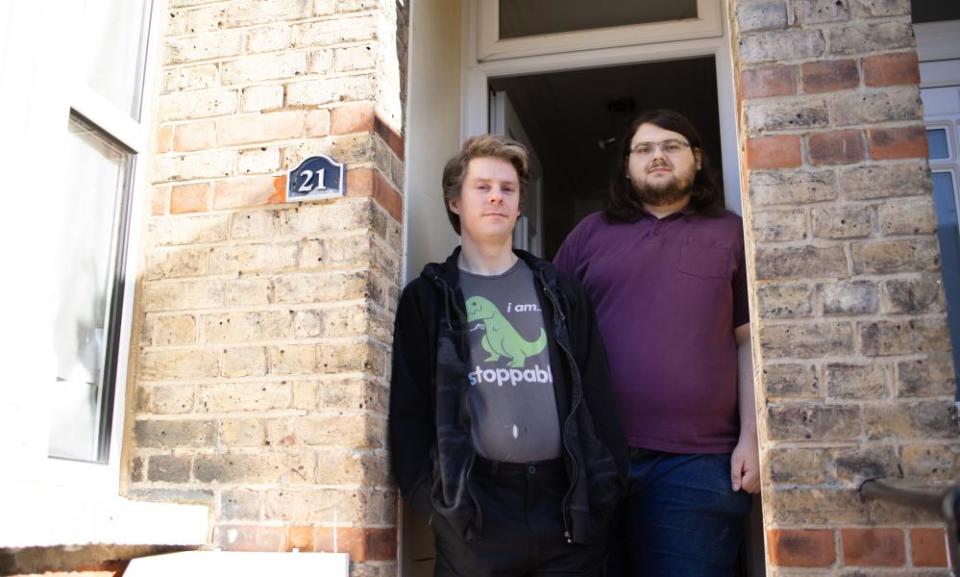Eviction orders being issued despite UK government Covid pledge

Eviction orders are being issued to tenants who have run up rent arrears because of the pandemic despite a promise by the housing secretary, Robert Jenrick, that “no renter who has lost income due to coronavirus will be forced out of their home”.
Twenty members of the London Renters Union are among those facing the first court proceedings after the government quietly changed its eviction ban last month to allow landlords to throw out tenants who had fallen into arrears as a result of Covid.
One, an actor in the UK on a working visa, said theywere facing homelessness because they had no recourse to public funds. Another said that after years as a model tenant, unemployment at the start of the pandemic meant they had to seek emergency accommodation. George Smith received a letter from a county court on Saturday ordering him and his partner to leave their home by Wednesday or face eviction by bailiffs.
Until January, landlords could not evict tenants because of rent arrears amassed since the first March lockdown. They could only act if nine months’ arrears had built up prior to the pandemic. The amended rules – billed as an extension of the eviction ban – dropped that exemption for arrears accrued in the pandemic and reduced the length of arrears that would qualify for eviction to six months. It means that if people could not pay their rent from mid-August landlords can seek court orders to evict them.
Acorn, the national community union that focuses on renters’ rights said it was “deeply concerned” about the loophole, which it claimed “makes a mockery of Robert Jenrick’s promise that no one would lose their homes due to Covid”.
default
Last month, more than 750,000 families were behind with their housing payments and pandemic rent debts stand at £375m, according to the Resolution Foundation. The National Residential Landlords Association wants the government to give indebted tenants interest-free loans, but the London Renters Unions said: “If you can’t afford your rent, how can you afford loan repayments.”
Victor Yuan, an actor who lost his work at the start of the pandemic when he was hospitalised with Covid, had the terms of his eviction set this week. He had managed to resist the landlord’s attempts to throw him out but when the rule changed last month, he was left with no defence.
“I will be homeless soon,” he said. “It has been horrible. I am usually a very jolly person but I have been suffering. My doctor has prescribed me long-term medication because of the impact the stress has had on my mental health. I feel lost.”
He called on Jenrick to reinstate the protection for people who were in arrears as a result of the pandemic, adding that as he was in the UK on a working visa and so had “no recourse to public funds”, the council’s homelessness prevention team could not help him with housing. Nor can he get Universal Credit payments.
Smith, 27, a telecoms worker who is fighting a possession order after his partner, Paul MacKinnon, 34, lost his job at the beginning of the pandemic and they ran up more than six months of rent arrears, said the latest policy was “disgusting”. He said the government seemed more interested in protecting landlords than tenants.
“We are going to have to try and find emergency accommodation,” he said. “We don’t know what’s going to happen.”
The possession hearing took place on 18 February, but Smith said the duty solicitor at the court was unable to access the hearing to represent him and his partner. The court letter states that if they do not move out by Wednesday the landlord can apply for bailiffs to evict them without a further hearing.
The tenants, who have been supported by the London Renters Union, appear to be the first of many more expected to proceed through the courts. A coalition of campaigners has written to Jenrick demanding a rethink.
The trade unions Unite and GMB and other renters’ unions said: “One in three private renters have lost income because of the pandemic, and now data suggests that 840,000 renters are behind on their rent. Nineteen per cent of the UK population rent privately, and a third of them were in poverty before the pandemic. Without swift action, many renters will be unable to protect themselves and their families from coronavirus, homelessness and the misery of severe and perpetual indebtedness.”
Asked about the change in evictions policy, a government spokesperson said: “Robust protections remain – with longer notice periods of six months and the banning of bailiff enforcement of evictions for all but the most serious cases until at least 31 March.”
They said “most” evictions that go ahead would relate to arrears accrued before the pandemic and that councils could provide cash support through the discretionary housing scheme. However, this is only available to people on benefits, and so would not help either Yuan or Smith.

 Yahoo Finance
Yahoo Finance 